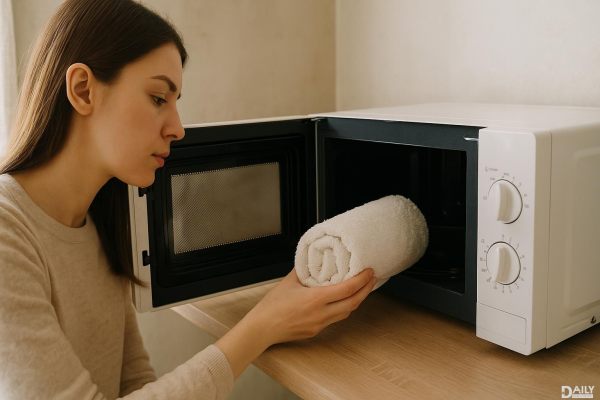If you're tossing and turning at night, a simple cup of tea might be the sleep hack you've been missing. The ritual of sipping something warm and soothing can signal to your brain that it's time to unwind, and certain herbal blends pack compounds that actually help ease you into dreamland. Science backs this up—chamomile, for example, contains apigenin, an antioxidant that binds to receptors in your brain to dial down anxiety and promote drowsiness. But not all bedtime brews are created equal, and there are some key things to keep in mind before you steep your way to better sleep.
The Science Behind Sleepy Teas
Herbal teas work their magic through bioactive compounds that interact with your nervous system. Chamomile’s apigenin, for instance, targets GABA receptors—the same ones activated by anti-anxiety meds—to quiet mental chatter. Valerian root, another popular pick, boosts GABA levels naturally, with studies showing it can slash the time it takes to fall asleep by up to 15 minutes. Passionflower amps up this effect by increasing gamma-aminobutyric acid (GABA) production, while linden (tilia) flowers contain nervine properties that gently sedate. Even classic peppermint tea makes the cut; though caffeine-free, its menthol acts as a muscle relaxant, easing physical tension that might keep you awake. The key? These herbs aren’t knocking you out like a sleeping pill—they’re nudging your body toward its natural sleep state.
Timing and Technique Matter
Chugging a mug right before lights-out is a rookie mistake. Nancy Farrell Allen’s advice to drink tea an hour before bed is spot-on—this gives your body time to process liquids (hello, midnight bathroom trips) while allowing the active compounds to kick in. Steeping time also affects potency: a lazy 2-minute dip won’t extract as much apigenin or valerenic acid as a full 5-10 minute steep. Pro tip: Cover your cup while brewing to trap volatile oils that boost effectiveness. Temperature matters too; aim for water just below boiling (around 200°F) to avoid scorching delicate herbs like chamomile, which can make tea taste bitter and reduce its calming effects.
Not All "Bedtime" Blends Deliver
Walk down the tea aisle and you’ll spot boxes labeled "sleepy time" or "nighty night," but marketing doesn’t always match science. Some brands sneak in ingredients like lavender or lemon balm—pleasant but under-researched for sleep benefits. Others contain "natural flavors" that might include stimulants. Always scan labels for these red flags: hibiscus (a diuretic that could send you sprinting to the toilet), ginseng (known to increase alertness), or worse—hidden caffeine from ingredients like guarana. Stick to single-ingredient teas or blends from reputable brands that disclose every component. If you’re caffeine-sensitive, even decaf black tea might be too much; trace amounts can linger enough to disrupt light sleepers.
Safety First: Herbs Aren’t Always Harmless
Just because it’s "natural" doesn’t mean it’s safe for everyone. Valerian root, while effective, can cause dizziness or grogginess in some people—definitely not something to test before driving or operating machinery. Pregnant women should avoid passionflower and large doses of chamomile, as their effects on fetal development aren’t well studied. Even something as common as peppermint can trigger heartburn or interact with medications like antacids or blood pressure drugs. Nancy’s warning about allergies is crucial too; chamomile is related to ragweed, so if pollen allergies wreck you, that floral tea might equal swollen eyelids instead of sweet dreams. When in doubt, consult a doc—especially if you’re on SSRIs, blood thinners, or sedatives.
Beyond the Tea Cup: Sleep Hygiene Synergy
Tea alone won’t fix chronic insomnia if you’re still doomscrolling in bed. Pair your brew with other evidence-backed sleep boosters: dim lights 90 minutes before bed (blue light filters don’t cut it), keep your bedroom around 65°F (18°C), and try the military method of progressive muscle relaxation while your tea works its magic. The ritual itself—warming your hands on the mug, inhaling the steam—can become a Pavlovian cue for sleepiness. For maximum impact, make it a consistent habit; one study found that chamomile drinkers saw the biggest sleep improvements after sticking with it for 28 nights straight. Patience pays when rewiring your wind-down routine.
So next time you’re staring at the ceiling at 2 AM, skip the melatonin gummies and reach for a properly brewed cup of chamomile instead. Just remember—what works for your insomniac neighbor might not work for you. Start with small sips to test tolerance, keep an eye on interactions, and give it a few weeks to shine. Sweet dreams (literally) might be just a steeping timer away.
























